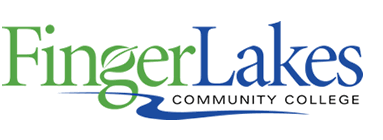Disability Services
Guide for Students and Parents
Transitioning from High School to College
| High School | College |
|---|---|
Students have Resource Room or Guided Study Hall where they receive focusing prompts and constant reminders of upcoming assignments, tests, and due dates. |
Students have to plan time in their day to utilize the tutoring services or Academic Strategies appointments. Students have to keep track of their own assignments, tests, and due dates. Students are not given focusing prompts, even if they are in a tutoring space. |
Students show up on test day and everything is prepared for them. |
Students have to submit a test request to test with accommodations |
| Teachers provide their notes for students that receive notetaking assistance as an accommodation. | Notetaking assistance consists of having access to instructor slides, use of recording devices, or GLEAN notetaking application. |
| Students don't have to know the name of their disability (or disabilities) or what their limitations are because it is all specified in their IEP or 504 plan and psychological evaluations, which is shared with instructors. | It is important for a student to know their academic limitation(s) and what to call their disability for self-advocacy purposes (to the Disability Services office only — other College officials cannot inquire about that information). |
Parents and/or guardians have a lot of involvement. |
Parents and/or guardians are not usually involved in the accommodations process. |
- Services provided under high school documentation (IEP or 504 plan) do not necessarily transfer to college services. Most testing modifications will transfer, but in-class accommodations may significantly differ.
- Disability Services does not provide diagnostic testing at this time.
- Higher education institutions do not provide personal aids, however, students who require a personal aid/attendant may continue this service of your own accord. Please notify Disability Services if a personal aid will be attending classes with you so that we can notify instructors, as a courtesy.
- Please review our Eligibility and Requirements to see if you are eligible for Disability Services accommodations.
Student Responsibilities
- Fill out and submit the Student Disclosure Form.
- Submit documentation of a diagnosis/disability, or schedule a consultation meeting with the Coordinator of Disability Services.
- The Coordinator of Disability Services will review the paperwork and consultation notes to determine the appropriate accommodations and adjustments. The approved accommodations will be listed on an Accommodation Notification form, which will be sent to students the week before the start of the upcoming semester. Note: if you register with our office after a semester has already begun, you will receive the Accommodation Notification within a few days of submitting your paperwork.
- It is the student's responsibility to share the Accommodation Notification with instructors to begin utilizing the approved accommodations and adjustments.
- Students will receive an updated version of their Accommodation Notification at the start of each semester (via email). There is no need to resubmit paperwork after this point, unless additional accommodations or adjustments are being requested.
More Resources
- To receive accommodations for your test(s), please visit www.flcc.edu/test.
- Time management assistance and tutoring is available for you to utilize through our Academic Success & Access Programs.
Contact Us
Room 3580
(585) 785-1441
(585) 785-1780
disabilityservices@flcc.edu
flcc.edu/disabilityservices
Hours
Mon-Thu: 8 a.m. - 5 p.m.
Fri: 8 a.m. - 4 p.m.
Virtual/Remote Services currently available. Please contact us by email or phone to set up an appointment.
Community Resources
Association for the Blind and Visually Impaired
Provides services for people who are either blind or visually impaired.
New York Center for Disability Services
Provides support and resources for people with disabilities.
ACCESS-VR
Provides assistance that supports employment and independent living.
Autism UP
Provides support services designed to aid individuals with autism.
